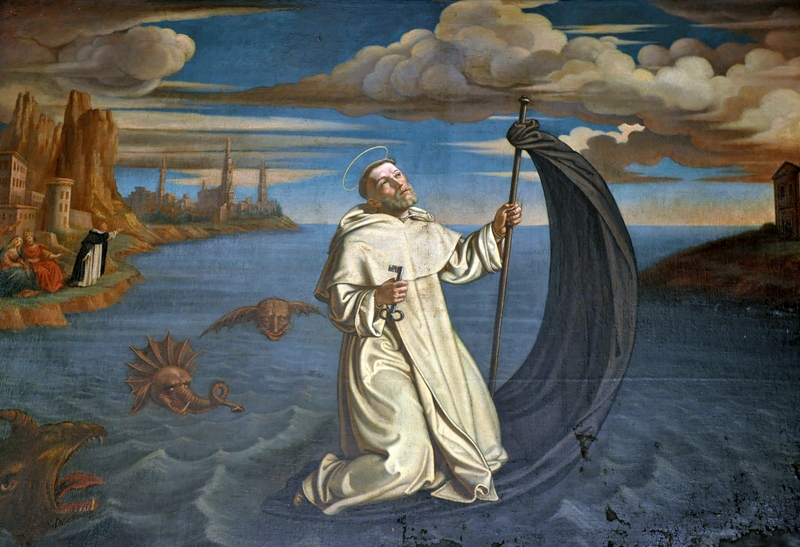St. Raymond was born in 1175 to a noble family, with ties to the royal house of Aragon, in modern-day Spain. He was a gifted student, and his philosophical nature led him to teach in Barcelona by the time he was 20. While teaching, he worked to bring the Catholic faith and teachings into his profession, especially concern for the poor and the suffering.
When he was 30, Raymond went to study secular and Church law in Bologna, Italy. He earned his doctorate and taught there until 1219, when he received an official position in the diocese. In 1222, he joined the Dominican order at the age of 47, and spent the next 53 years with them.
As penance for the intellectual pride of his earlier years, he was asked to write a manual of moral theology to be used by confessors. Raymond’s “Summa Casuum” was the first of many contributions to the Church. At the same time, he continued to spread the faith and bring many back to the Church.
In Barcelona, Raymond helped St. Peter Nolasco and King James of Aragon establish the Order of Our Lady of Mercy, the order that sought to ransom captives in Muslim territory. He promoted the Crusades through his preaching, encouraging Catholics to defend their homes from foreign enemies.
In 1240, Pope Gregory IX called Raymond to Rome to compile the Church’s decisions and decrees into one uniform work. The five books Raymond compiled served as the basis of the Church’s legal system for centuries. During this time, Raymond served as the pope’s personal confessor and advisor.
Raymond was then chosen to lead the Dominicans, although he was only able to hold this position for two years due to his age. However, after he resigned, he went on to preach and spread the Gospel for another 30 years.
St. Raymond died on Jan. 6, 1275, at about 100 years of age. He was canonized in 1601, and is the patron saint of lawyers, especially canon lawyers.

